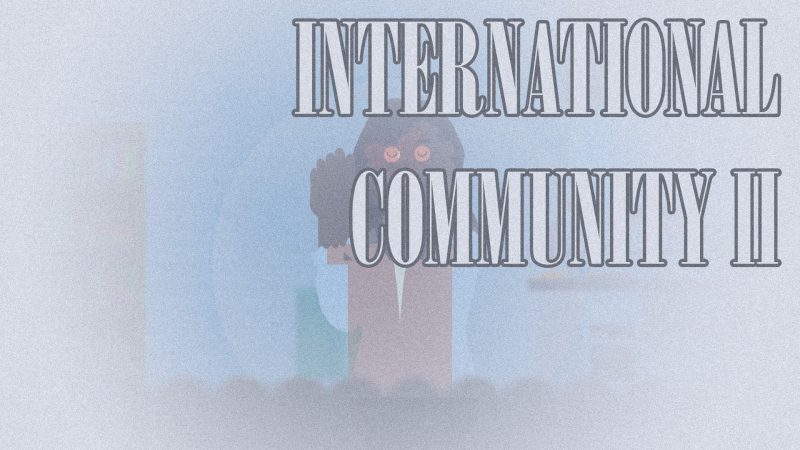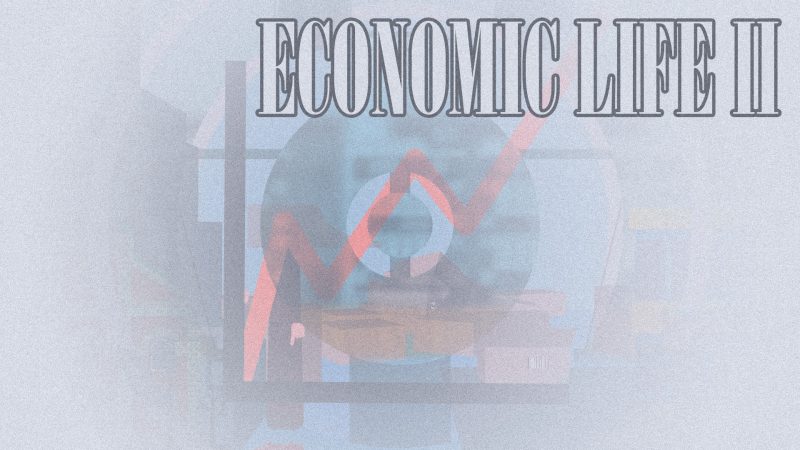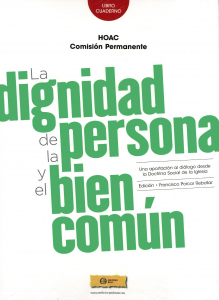If we want the common good to be a practical and effective reality we cannot ignore everything surrounding the use of goods and the right of property.
Christian tradition has insisted on the fact that we are not absolute and exclusive owners of goods but just administrators of the goods that God had placed on our hands. The Catholic church says that it is a fundamental right for every person to have whatever he or she needs in order to live and to develop in a human sense. That right, linked to the person’s dignity, precedes every other form of social organization of property.Goods should not be a goal themselves, but a mean to make possible the life and a dignified life. Goods, coming from nature and humans work, are of all and for all. Its use has to be guided by the previously mentioned principle of justice: everyone should be able of using those goods.
Social doctrine is calling to this the universal destination of goods, which is the first principle of ethical and social ordering. It has several implications:
All of us have the right to possess and to use whichever goods needed to have a dignified life.
We have the duty of making a common effort to build whatever condition needed to achieve both an integral development and a dignified life.
We have the duty of solidarity with impoverished people. No one should lack needed goods to live a dignified life.
We also have the duty of guiding the property and the use of goods according to both communion and the universal destination of goods.
Catholic church defends the personal right of property as a natural right but is also claiming that there exists a social mortgage emerging from whichever form of property, which is related with the self-responsibility, the responsibility with neighbors and the responsibility with society, especially with impoverished people.
The problem does not consist of the legal form of property (private, public, community, collective and so on) but on its orientation. The property has never to lose its perspective through the universal destination of goods. A form of property can only be right when it eases everyone the access to the goods needed to live a dignified life.
The right of property is also linked to the means of production. The social doctrine defends that the only legitimacy to own the means of production is to put them at the service of an economy made for people, serving the human being´s needs through the perspective of the common destination of goods.
Catholic church considers that property is acquired mainly through the work. The fruit of work has to reach everyone in a right way, what can be applied also to the means of production. Every worker should be able to take part in the mean of production used by him or her. Also, the means of production cannot be owned opposing the work itself.
The universal destination of goods and the right of property imply a responsibility of every person, of society and of the political community. Because of that, the state has several functions that cannot be eluded. Among others there are the promotion of exercising the right of personal property within the limits of the common good, to ensure the social function of property and to promote the redistribution of goods through politics scoping economy, work, public services, social life and so on in order to correct the social inequalities.
But our social system is placed on antipodals of the universal destination of goods meaning. The unbraked liberalism is generating an international imperialism of money which leads us to an economic dictatorship. The private property defended is excluding a lot of people.
The property of the means of production is owned and practiced on both an immoral and an illegitimate way. And all of that occurs within legal limits, which is worst because it is considered the natural way. There exists the belief that the more you have the more you are. Both the being and the having are mixed up.
And because of that, it is essential to rethink our own personal responsibility on the use of goods.
DSI sentence
The principle of the universal destination of goods requires that the poor, the marginalized and in all cases those whose living conditions interfere with their proper growth should be the focus of particular concern.
Social Doctrine compendium n.182
Act
Let’s look at two things: our own use of goods and the mentality prevailing in our environments about the property and the use of goods.
What do you think it needs to be changed in each of these realities, according to our behavior and the mentality of our environments?
Download the PDF attached
Previous video:
Next video:
You Might also like
-
The international community 2
On our world, it coexists the situation of peoples deprived of the very basics for a dignified way of living with other societies where exist an overabundance of all kind of material goods. This situation among others is clashing with the right to development we all have.
-
Economic life 2
In order to achieve an economy with a human face, it is necessary to answer some fundamental questions related to economic life through the perspective of human dignity and the common good. Why should we produce? According to the social doctrine, the goal for the economy is the satisfaction of human needs understood in its big sense: material, cultural and spiritual needs.
-
Migrations 1
We cannot talk about the international community without taking a look at the migratory phenomenon. Usually, we talk about it using a deformed speech, as if it was a problem in itself. It is proper to talk about migrations as a great human phenomenon which turns into problems when it is bad-managed.




